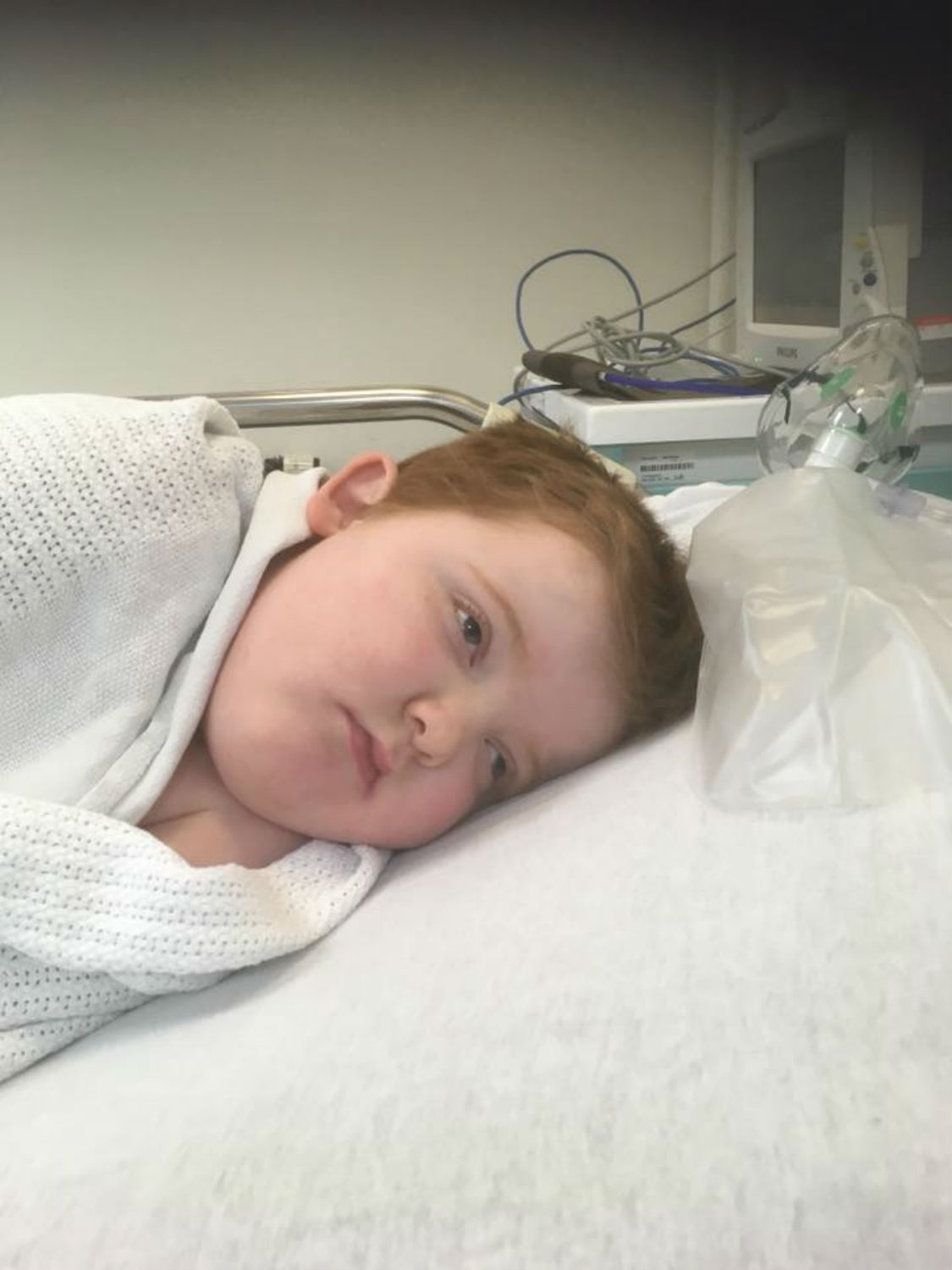A SCOTS mum has revealed her five-year-old son was given the horse tranquiliser ketamine to treat his epileptic seizures.
Murray Gray has 600 seizures a day and sufferers from a rare form of epilepsy that affects only one or two children out of 100 who have condition.
Doctor’s tried giving him ketamine over five days – but it did nothing to improve his condition.
The youngster had all the side-effects of the drug famed as a horse tranquiliser, but none of the benefits.
Not mum-of-three Karen, from Edinburgh, is campaigning to have medicinal cannabis made available on the NHS – in a bid to help improve Murray’s quality of life.
Karen has already handed in a 170,000 signature petition to Downing Street last month, and hopes to trigger a debate that would see the drug made available.

She is set to protest outside the Scottish Parliament tomorrow (thur).
Recent research conducted by Ohio State University has suggested that treating those with epilepsy with medicinal cannabis could halve the number of seizures they have each day.
Ketamine, also known as Special K or Cat Tranquiliser, can cause increased heart rate and blood pressure, nausea, vomiting, numbness, depression and even hallucinations – if taken recreationally.
Doctors at the Royal Hospital for Sick Children in Edinburgh, where Murray receives treatment, tried the youngster on a variety of different medications in an effort to end his ordeal.
Murray, a P1 pupil at Clermiston Primary School in Edinburgh, was diagnosed with Myoclonic Astatic Epilepsy aged two.
The five-year-old currently takes 100mg of zonegran, four 400g Epilim tablets and 5mg of clobazam – twice a day.

In an attempt to help the youngster deal with a cascade of seizures, they gave Murray 1.65mls of ketamine over five days three months ago.
Mum Karen said: “What’s happening is he gets IV treatment but his body seems to be getting used to that so it’s not just helping him. So, the only other option available to Murray when he goes into this phase of seizures is to try him again with ketamine – which is the horse tranquiliser.
“He was on it before three months ago, they gave him 1.65mls and he took it for five days but it did nothing for him.
“The neurologists are genuinely wanting to give him ketamine and he’s had it before.
“I researched it and in Belgium they are treating some people who have epilepsy with ketamine and apparently it can help.
“But, I think with Murray, nothing else is helping him so the doctors are trying different things.
“He got all the side effects and none of the perceived benefits with ketamine – it never calmed his brain and didn’t stop his seizures. He was very drowsy after taking it.”

Scottish Liberal Democrat Christine Jardine said: “It is ridiculous that there is a medicine out there that could alleviate Murray’s condition and the conditions of many others across the UK.
“Instead of one Class Be drug he has been prescribed another Class B drug. The Conservative government should listen to the clear public view, expressed in support of Karen Gray’s petition, that it’s time for change. I am pushing for a parliamentary debate to pursue this change.”
Mum Karen also recently met with Scottish health secretary Shona Robison, who is looking into the potential availability of a cannabinoid medicine created by UK company GW Pharmaceuticals called Epidiolex.
A Scottish Government spokesperson said: “Shona Robison had a very productive meeting with Ms Gray recently and was able to get a greater understanding of the difficulties she and her son face.”
Tracey Gillies, medical director at NHS Lothian, said: “Ketamine is only prescribed in rare cases for children with severe epilepsy where other rescue medications have not been sufficiently effective.
“Ketamine is considered a rescue medication and is only prescribed in a small dose and as a temporary measure, generally no more than five days, until regular medications or special diet have become effective.
“It is also only used in specialist centres.”

